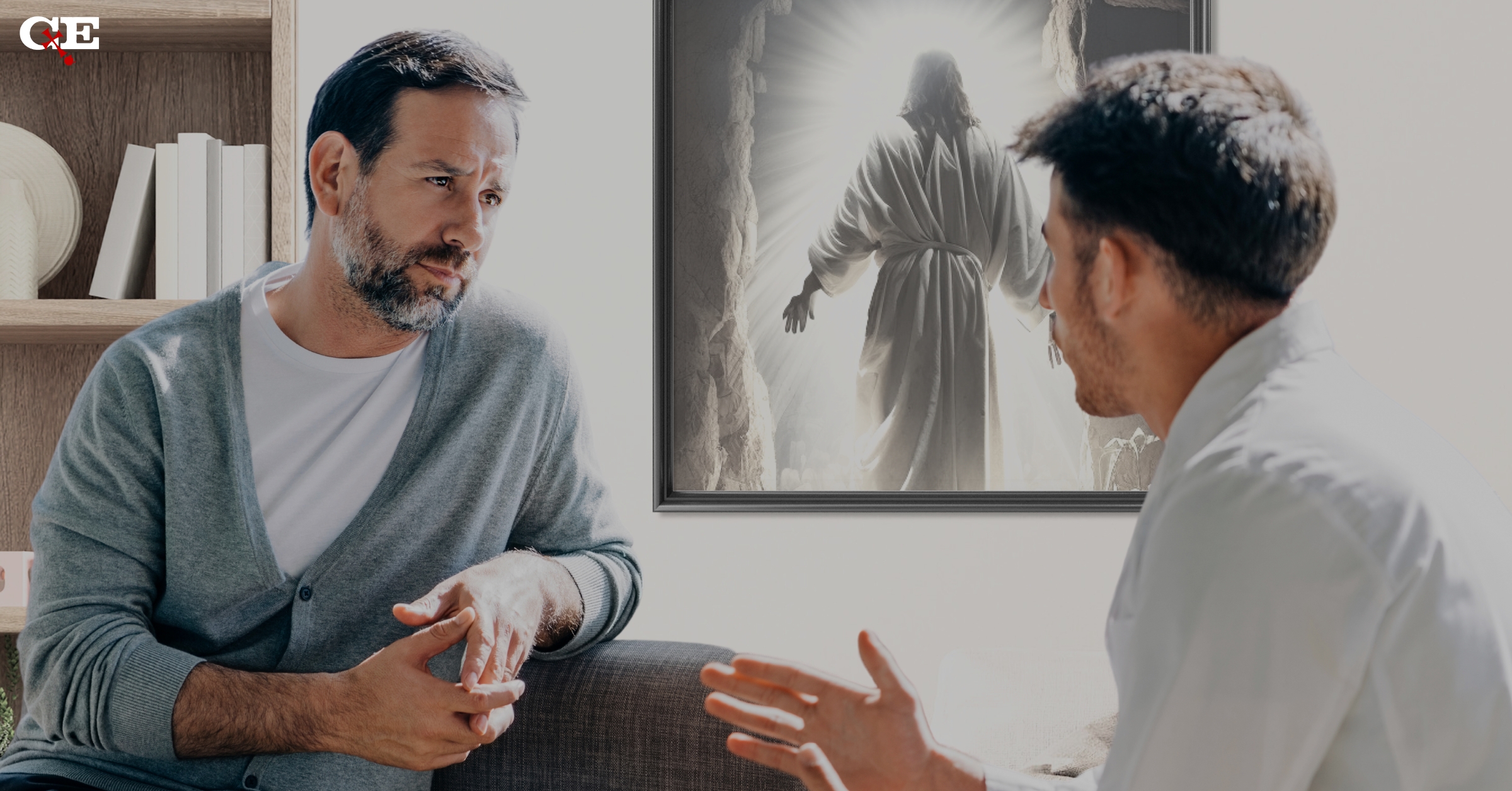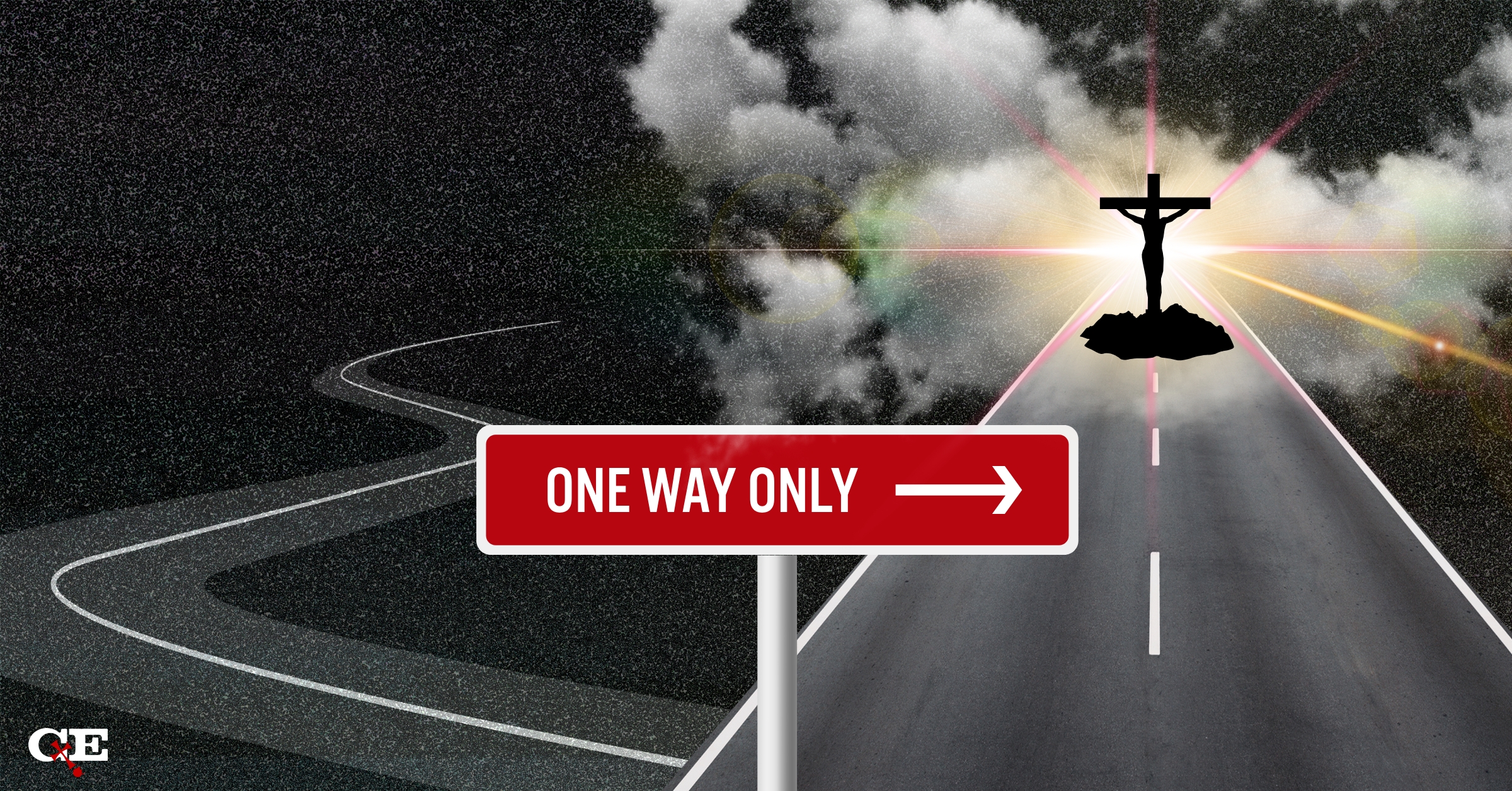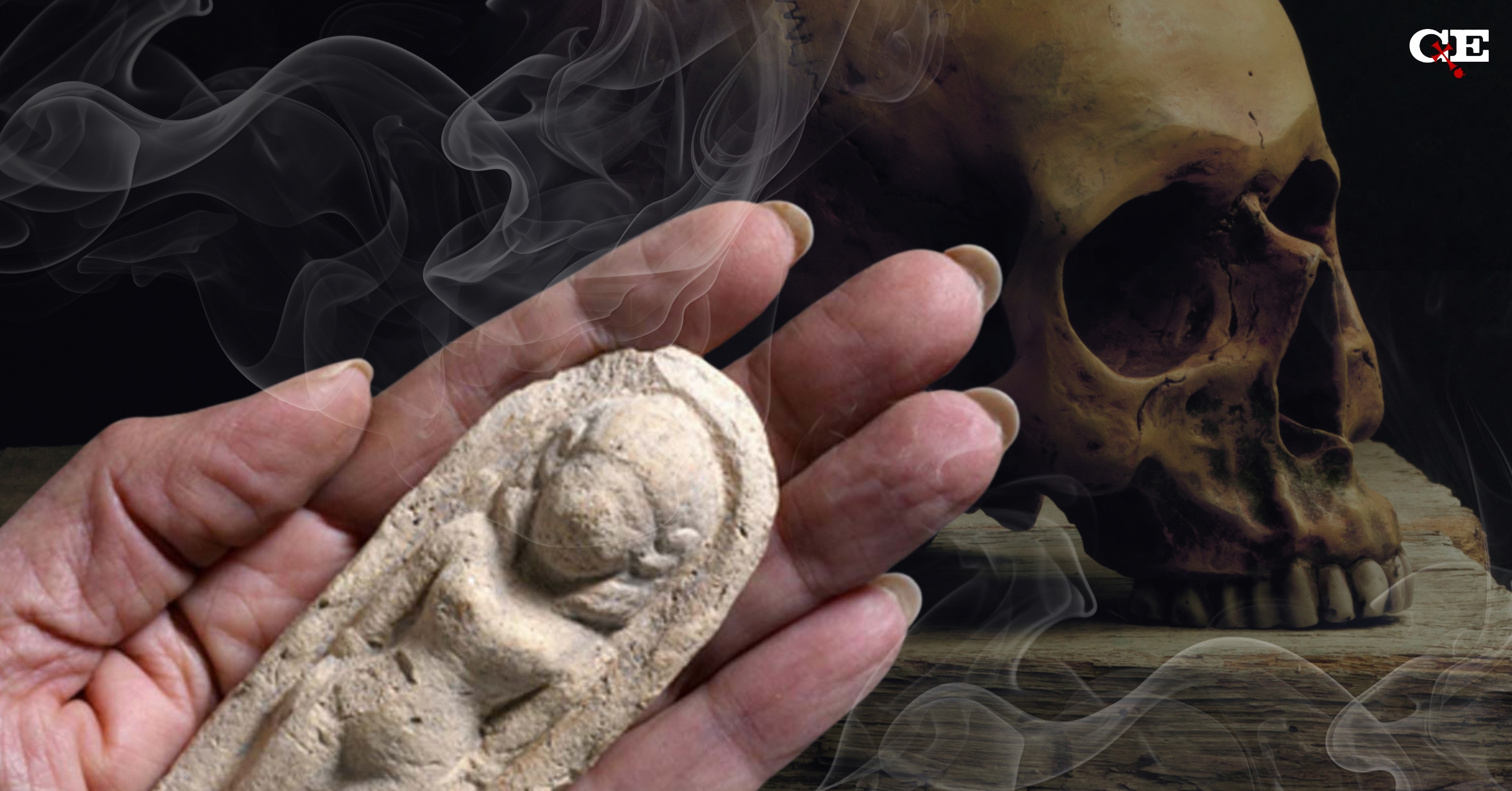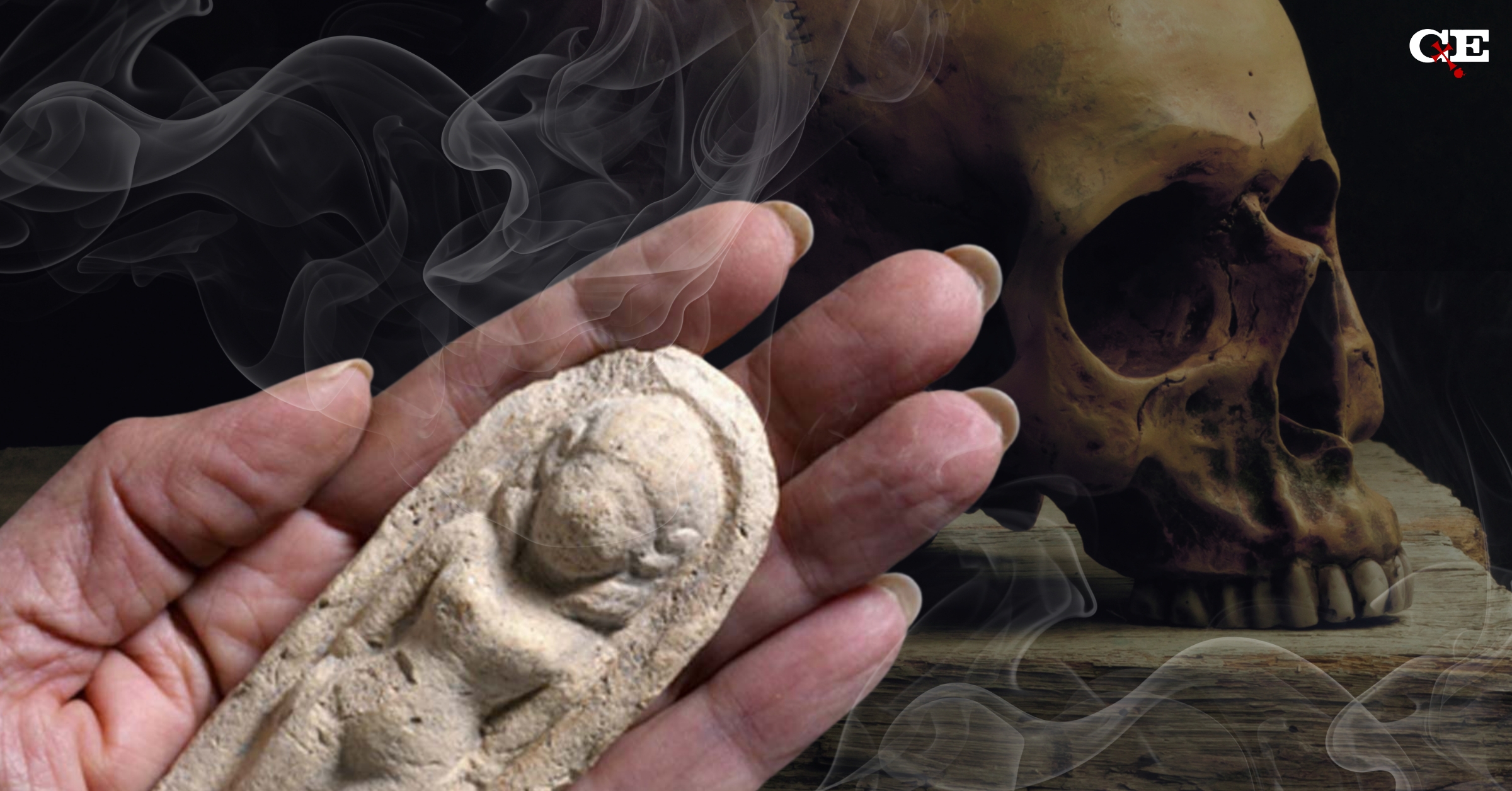When reflecting on over forty years of pastoral ministry carried out in numerous forms and contexts, two recurring realities emerge as most prominent in my experience. First, people are often profoundly troubled and deeply hurting amid the moral chaos and cultural decay of a sin-stricken world, resulting in a brokenness that reaches the deepest recesses of the human mind and heart.

Second, the gospel—the hopeful proclamation of the now-and-not-yet kingdom of God as manifested in the deity, death, and resurrection of Jesus Christ—is the greatest source of healing for individuals, families, churches, and cultures.[i]
“The gospel—the hopeful proclamation of the now-and-not-yet kingdom of God as manifested in the deity, death, and resurrection of Jesus Christ—is the greatest source of healing for individuals, families, churches, and cultures.”
In a word, the world is profoundly out of sorts and only Jesus can set it to rights. It is the concomitance of these two concerns that provides much of the context and content of what has become a focus in my ministry, namely biblically based, gospel-centric pastoral counseling.
H.O.P.E.
Bearing this in mind, the following is a brief introduction to a model of pastoral counseling I developed utilizing the acrostic HOPE (Hear the Pain; Optimize Passional Reason: Proclaim the Gospel; Emphasize the Resurrection). Of particular significance for this model is that it gives central place to the resurrection in the caregiving process.
My goal is to demonstrate the HOPE model through a notional scenario derived from real counseling experiences, thereby highlighting how the resurrection provides a key component in helping broken people experience transformation and lasting wholeness.
H: Hear the Pain
Scenario: Randy walked into the pastor’s office with a look of consternation on his face and a certain slowness in his step. The appointment was scheduled the prior Sunday after Randy asked for prayer at the conclusion of the service. The pastor had heard a certain familiar pain in Randy’s voice, so he offered to not only pray that day, but to meet in person for a follow-up counseling discussion. Randy was happy to accept the offer, and now he stood in the office.
“Sit down, Randy,” said the pastor, “and tell me what’s on your mind.” Randy sat opposite the pastor’s desk and, after an opening prayer by the pastor, began to share his story. Moment by moment, hurt by hurt, Randy recounted his experience with Post Traumatic Stress precipitated by several tours of combat in Iraq.
The pastor listened intently, careful not to interrupt and trying to avoid anything like a leading question; his concern was to give Randy ample space and time to tell his story, and it was quite a story.
At one point the emotion in Randy’s voice heightened and he burst into tears as he recounted the loss of dear friends during a combat operation gone awry. It was clear that Randy was hurting, and the pastor was glad Randy was able to get the hurt out into the open in the safety of a counseling session.
Discussion: All counseling begins with listening, or at least it should.[ii] It is when the pastor listens without leading or stifling responses, that the counselee can paint the picture of the problem that brought them to seek help.
As the counselor listens, there are two goals: 1) establish with the counselee that the pastor wants to hear before responding, to listen before counseling; and 2) to give the pastor a sense of the depth of the pain involved in the situation and what related matters may need to be addressed later and/or may justify a referral to caregivers with relevant expertise.
Further, hearing the person’s pain may involve more than one session where the counselor offers little input, opting to show support by listening intently and for as long as it takes to get the counselee to the place where their burden is sufficiently expressed and understood.[iii] Again, counseling begins with listening, with hearing the pain.
O: Optimize Passional Reason
Scenario: After talking for nearly an hour without interruption, Randy began to quiet himself, finally coming to a point of asking, “Pastor, what can I do to get through this pain?” After a thoughtful pause before answering, the pastor replied with a question of his own. “Randy, what do you think would help you?” Seeming a bit frustrated, Randy responded, “I’m not sure. That’s why I’m talking to you, pastor. I need your help.”
After another pause, the pastor stated, “Randy, thank you for trusting me with your pain. What I heard as you recounted losing your friends was two things.
First, your emotions are up and down, high and low, and I suspect you are unable to find a balance most of the time. Second, there are a few areas in your explanation and evaluation of what you are going through that are a bit out of sorts with what is true.” Randy looked intently at the pastor, nodding slightly.
The pastor continued, “Randy, getting to the place of wholeness involves both how you think and how you feel—not one or the other, but both. My goal is to help you think and feel your way through this issue. I want you to learn to check your feelings with your reason, and to allow your reason to be properly informed by your feelings.”
Discussion: Much of what constitutes a counselee’s burden is a mismatch between facts and feelings, between reason and emotions. However, the counselor must not assume that feelings are always wrong, or that the answer to the counselee’s problem is simply a matter of clearer thinking.
It is imperative to recall that humans form beliefs based on a combination of reason and emotion, with both coming together and each informing the other so that the whole person comes to a particular conviction or position with their head and their heart. This confluence of reason and emotions in relation to forming beliefs is called passional reason, and counselors who learn to optimize it in the counseling process are more likely to see holistic transformation encompassing noetic and affective capacities in the counselee.[iv] Thus, when a counselor begins to engage the counselee’s story, he should look for instances of misshapen thoughts and feelings and explain to the counselee that both areas will be addressed during the counseling process.
Lest this point seem to call for some type of specialized knowledge on the part of the pastor, consider that with or without the nomenclature of passional reason there is an intuitive sense that thinking and feeling are fundamental aspects of being human. Thus, optimizing passional reason is simply another way of inviting the counselee to experience wholeness as a “whole” person, beginning with their thoughts and feelings.
P: Proclaim the Gospel
Scenario: Randy sat for a moment, then asked, “So what you’re saying, pastor, is that my head and my heart need healing?” “Correct,” replied the pastor, “and that healing begins with hearing one more time something I know you already believe with all your mind and heart.” After sitting quietly for another moment, Randy replied, “What do I need to hear, pastor?”
Looking intently at Randy, the pastor spoke with passion and clarity, “Randy, Jesus is Lord. He died and rose again. He loves you, and because he rose again and overcame death, he can and will help you overcome your pain and grief.” After letting those words of the gospel settle onto Randy for a moment, the pastor continued, “Randy, am I right? Do you believe the gospel with all your heart and mind? Do you believe that Jesus is Lord, and that he died for you, rose again for you, and is right now at his Father’s right hand, praying for you?”
With tears in his eyes, his voice breaking, Randy replied, “Yes, pastor, I do believe those things.” “Good, Randy,” replied the pastor, “because the Jesus’ resurrection is essential to your wholeness and healing.”
Discussion: What makes Christian counseling unique is not method but focus. The Christian counselor’s ultimate point of reference from beginning to end of the caregiving process is the message of the gospel.[v] While the pastor’s counsel may include more than the gospel, it certainly should never leave out the gospel.
“What makes Christian counseling unique is not method but focus. The Christian counselor’s ultimate point of reference from beginning to end of the caregiving process is the message of the gospel.”
In this sense, pastoral counseling is evangelical counseling, which is to say that it is counseling through the lens of the evangel, the good news, the gospel. Thus, in the notional scenario the pastor has laid the groundwork by hearing the pain of the counselee and optimizing passional reason as the epistemic pathway to wholeness.
Now enters the gospel, which encapsulates all the hope the counselee seeks. While there may be varied approaches to proclaiming the gospel and different points of emphasis by its proclaimers, what is fundamental to the Christian path to remedy is the declaration of the deity, death, and resurrection of King Jesus.
It is not enough to assume that because counseling is Christian that the gospel is clear. Rather, the pastor has the privilege and necessity to proclaim the gospel to his counselee, thereby giving center place to the lordship of Jesus over death and the grave as his resurrection is highlighted as the ultimate demonstration of victory in place of defeat.
E: Emphasize the Resurrection
Scenario: Randy continued to listen as he leaned forward in his chair and drew a bead on the pastor with his eyes. The pastor continued, “Randy, the healing you seek in your mind and heart will take time, but it is possible because of Jesus’ victory over the grave. What we will do going forward is sort of like taking a tube of antibiotic cream and applying and reapplying it to an open wound, except in this instance the wound is your Post Traumatic Stress, and the antibiotic cream is the resurrection.”
Randy thought for a moment, then asked, “Pastor, exactly how does that work? I mean, how do I apply the resurrection to my situation?” After a pause, the pastor replied, “Think of it like this. You told me that lately you struggle most with a feeling of hopelessness when you think of how your heart seems to know only an aching sense of despair. You wonder if it is possible to ever get past the hurt and loss.”
Romans 8:11
Randy nodded in agreement. “Your homework is to write down on a card that you will carry with you at all times the following: ‘But if the Spirit of Him who raised Jesus from the dead dwells in you, He who raised Christ from the dead will also give life to your mortal bodies through His Spirit who dwells in you.’ That is Romans 8:11, and it is a powerful reminder that the Spirit is at work in you giving you the life—the same life—that brought Jesus from the dead.
His resurrection is your victory, and as often as you find yourself struggling with the thoughts of despair you must apply the hope of the gospel to your situation. Over time you will come to experience a change in your outlook as your mind learns that the hopeless thought is a trigger to the hope of the resurrection. This is how you can do what Paul said later in Romans 12:2, ‘be transformed by the renewing of your mind.’”
A smile came to Randy’s face, the first one the pastor had seen since the session began. “Pastor,” Randy said with confidence, “I know I have a long way to go, but I’m starting to think and feel like I can get there with your help…with Jesus’ help. His resurrection is my hope.” “You are right, Randy, there is hope because of Jesus’ resurrection.”
Discussion: As an example of the blending of methods from cognitive behavioral therapy and the hope of the Christian gospel that flows from the resurrection, what the pastor offers is an approach to healing the mind and emotions with the truth of Scripture that capitalizes on neuroplasticity and trigger thoughts/words.[vi]
Again, just as with passional reason, so with this aspect of pastoral counseling there is no need for the pastor to be an expert in various counseling modalities. Rather, through a simple and consistent process of learning to correct thoughts and feelings with the hope of the resurrection, the pastor can lead the counselee along the path of a renewed mind and heart.
In the notional scenario discussed here, the pastor would continue to help Randy apply the truths of God’s Word, and especially the message of Jesus’ resurrection to the thoughts and feelings that are out of sync with the Spirit’s work in sanctification. This would happen over numerous counseling sessions and periodic checkups thereafter.
Conclusion: Hope Lives Because Jesus Arose
By utilizing the HOPE acrostic, the notional scenario illustrates how a Christian counselor may combine elements of cognitive behavior therapy with the gospel message of the deity, death, and resurrection of Jesus. The counselor hears the counselee’s pain, optimizes passional reason, proclaims the gospel, and emphasizes the resurrection in ways that help the counselee apply the truth of Jesus’ victory over death to their struggles and shortcomings. Indeed, because of the resurrection hope lives in a tangible and powerful way through the work of pastoral counseling.
References:
[i] Cf. 1 Cor. 15:3-4. Unless otherwise noted, all Scripture quotes are from The Holy Bible: New King James Version (Nashville: Thomas Nelson, 1982).
[ii] For a discussion of the importance of listening to the counselee, see Harry Shields and Gary Bredfeldt, Caring for Souls: Counseling Under the Authority of Scripture (Chicago: Moody, 2001), 179-180.
[iii] Charles Allen Kollar, Solution-Focused Pastoral Counseling: An Effective Short-Term Approach for Getting People Back on Track, 2nd ed. (Grand Rapids: Zondervan, 2011), 79-88.
[iv] William J. Wainwright, Reason and the Heart: A Prolegomenon to a Critique of Passional Reason (Ithaca, NY: Cornell University Press, 1995), 1-6.
[v] Gary R. Collins, The Biblical Basis of Christian Counseling for People Helpers: Relating the Basic Teachings of Scripture to People’s Problems (Colorado Springs: NavPress, 2001), 3-11.
[vi] Shields and Bredfeldt, Caring for Souls, 193-223.
Recommended Resources:
If God, Why Evil? (DVD Set), (MP3 Set), and (mp4 Download Set) by Frank Turek
Reflecting Jesus into a Dark World by Dr. Frank Turek – DVD Complete Series, Video mp4 DOWNLOAD Complete Series, and mp3 audio DOWNLOAD Complete Series
Why does God allow Bad Things to Happen to Good People? (DVD) and (mp4 Download) by Frank Turek
Relief From the Worst Pain You’ll Ever Experience (DVD) (MP3) (Mp4 Download) by Gary Habermas
Dr. Thomas J. Gentry II (aka T. J. Gentry) serves as the Senior Pastor of First Christian Church of West Frankfort, Illinois, the Assistant Vice President of Publishing and Communications, and the Assistant Editor of Bellator Christi Ministries. He formerly served as the Executive Editor of MoralApologetics.com. Dr. Gentry earned his Ph.D. in Theology and Apologetics (Liberty University); Ph.D. in Theology with Missiology (North-West University, South Africa); and Ph.D. in Biblical Studies, Ph.D. in Leadership, and D.Min. in Pastoral Counseling (Carolina University). Additionally, he is the President of Illative House Press (illativehousepress.com), having previously published Pulpit Apologist: The Vital Link between Preaching and Apologetics (Wipf and Stock, 2020) and Absent from the Body, Present with the Lord: Biblical, Theological, and Rational Arguments against Purgatory (Wipf and Stock, 2019). Additionally, Dr. Gentry proudly served his country, both enlisted and officer, in the United States Army Chaplain Corps, and he has taught martial arts as a Christian ministry platform since the late 1990s. He is an adjunct professor at Carolina University (carolinau.edu). He and his wife are blessed with five children and two grandchildren. His daily Bible teaching and devotions can be heard at tjgentry.net.
Originally posted at: https://bit.ly/3Z9VanC












